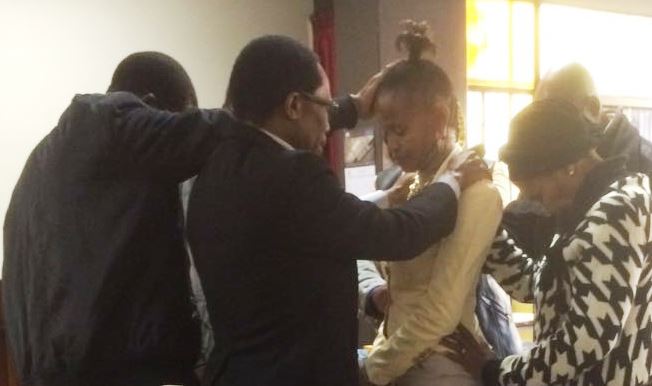Tim Maguire, GCI-South Africa National Director, announced recently that in June of this year, Rachel Nhlapo was ordained an elder. The ordination ceremony (pictured below) was led by Regional Pastor Takalani Musekwa. Congratulations Rachel!
Year: 2016
The tragedy of untruthfulness
Dear Brothers and Sisters,
 There are two little-known, rarely-observed holidays in the U.S. that address the issue of truthfulness: Honesty Day (April 30) and Tell the Truth Day (July 7). Has truth-telling become so rare that we need two holidays to get people thinking about this essential value? Though a lack of truthfulness is not exclusive to politicians, the current U.S. election cycle has brought forth a flurry of fact-checking activity calling into question the truthfulness of statements made by just about all of the presidential candidates. Sadly, honesty is no longer the norm in daily life, politicians included. I could cite many examples, but below are four statements—see if you can correctly match each with one of these four candidates: Rand Paul, Bernie Sanders, Hillary Clinton or Donald Trump. [1]
There are two little-known, rarely-observed holidays in the U.S. that address the issue of truthfulness: Honesty Day (April 30) and Tell the Truth Day (July 7). Has truth-telling become so rare that we need two holidays to get people thinking about this essential value? Though a lack of truthfulness is not exclusive to politicians, the current U.S. election cycle has brought forth a flurry of fact-checking activity calling into question the truthfulness of statements made by just about all of the presidential candidates. Sadly, honesty is no longer the norm in daily life, politicians included. I could cite many examples, but below are four statements—see if you can correctly match each with one of these four candidates: Rand Paul, Bernie Sanders, Hillary Clinton or Donald Trump. [1]
- “My mother named me after Sir Edmund Hillary after she read an article about his climbing Mount Everest.” (According to Snopes.com, Sir Edmond climbed Mt. Everest five years after this politician’s birth).
- “I received $1 million for a speech in 2005.” (According to various sources, this politician actually received $400,000).
- “Climate change is directly related to the growth of terrorism.” (According to Politifact.com this is an overstatement).
- “A man was put in prison for conspiracy just for having dirt on his land.” (According to FactCheck.org, the man was convicted of mail fraud, conspiracy and environmental violations for developing 67 mobile home lots inside federally protected wetlands without approval).
In providing these quotes, I’m not making political statements for or against any candidates. I refuse to do that, and it’s GCI policy that pastors not promote one candidate over another, or use their influence to sway members to vote one way or another. My point is that commitment to truth-telling is not the norm in our politics. Studies show that people expect politicians to lie. Dan Ariely, professor of psychology and behavioral economics at Duke University, put it this way:
People want their politicians to lie to them. The reason…is that people care about politics. [They] understand that Washington is a dirty place and that lying is actually very helpful to get policies implemented.
Though I care about politics, I do not want politicians to lie to me and I think it is tragic that politicians believe they can’t get anything done without lying. But enough about politics. My main point is this: over the last several years, we’ve been witnessing a growing tragedy of untruthfulness in which lying is becoming the norm. When one liar succeeds, others are tempted to follow. Even more tragically, when a lie remains in active play, it has a lingering effect even after it has been refuted. Think of someone who has been falsely accused—though they prove their innocence, the damage continues.
A long history of lies
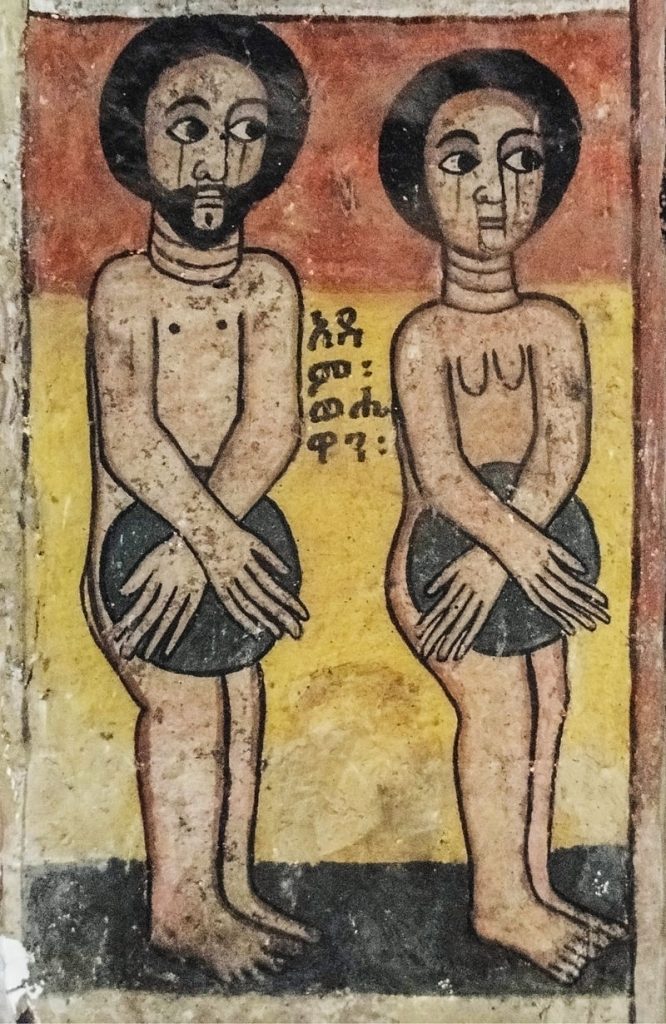
(from an Ethiopian church mural)
Public domain via Wikimedia Commons
Though it seems to be on the rise, lying is nothing new—it started with Adam and Eve in the Garden of Eden and has continued ever since. Harvard PhD and social scientist Bella DePaulo, who has been studying the psychology of deception for decades, summarizes some of her research in The Hows and Whys of Lies. She shows that people often do lie and examines their motivations. In one study, she put recorders on students for a week and found they lied, on average, in every third conversation of ten minutes or more. For adults, it was every fifth conversation. A few years later, Robert Feldman at the University of Massachusetts taped students in conversations with total strangers and got similar results. University of Toronto professor Kang Lee has done extensive research on children and lying. He set up an experiment in a video-monitored room and told children that a toy has been placed behind them, which they can have, but only if they do not peek. The adult then leaves the room and when they return a minute later asks the children if they peeked. At age 2, 30% lied; at 3, 50% lied; at age 5 or 6, 90% lied. Though Lee said he worries about the 10% who did not lie, I worry about a professor who has that worry!
Don’t believe everything you read
Though people tend to rely on scientists to tell the truth when making scientific claims, the facts indicate otherwise. According to Retraction Watch, retractions of scientific claims have increased 1900% in the last nine years. They also report that, in the first decade of the 21st century, “retractions of papers published by medical journals went up 19 fold, although the number of manuscripts being published only increased 44%.” Natural News reported that, according to the Committee on Publication Ethics, publication fraud occurs through fabrication, falsification and plagiarism. Most people (including most scientists), want to be honest, but if they live in a country where half-truths and bald-face lies are rampant, many begin to think, “Everybody cheats, so if I cheat here, then I guess that’s OK.” And so unfolds the tragedy of untruthfulness.
Believe (and follow) Jesus—he is the Truth
Lying, of course, is contrary to the way of Jesus, which is the way of truth. As Christians, we live in the truth of who Jesus is and of who we are in union with him. We value truth because we know who truth is—Jesus Christ! He says to us, “I am the way, the truth, and the life” (John 14:6 NKJV). These three dimensions of human existence are one in him and from him we receive all three. Take one away and the others collapse as well. While we cannot ourselves be the truth, in the light of who Jesus is we look for, live by, and depend upon all other truths relative to him. As followers of Jesus, we reject untruthfulness because it does not lead to participation in his life and love.
I thank God that many people are truth-tellers. But because untruthfulness abounds in our world, I long for the fullness of the kingdom when Jesus brings truth to bear in a renewed earth where all live in the truth of who they are in Christ (Isaiah 65:17; 2 Peter 3:13). At that time there will be no more tears—all will be healed and made whole. What an everlasting party that will be! And that, dear friends, is the truth!
Celebrating the truth that Jesus is and will always be,
Joseph Tkach
___________________
[1] Here is who made each campaign statement: (1) Hillary Clinton, (2) Donald Trump, (3) Bernie Sanders, (4) Rand Paul.
Day camp outreach in Cincinnati
As part of its outreach to the surrounding community, Christ Fellowship Church (a GCI congregation in the Cincinnati, Ohio, area) conducted on their property a three-day family festival followed by Westside Christian Camp—a week-long day camp serving 50 children. The congregation was assisted by young adults who came to Cincinnati from around the country. Led by Janet Morrison, these missionaries served under the banner of GC Trips, one of Generations Ministries’ multiple mission organizations.
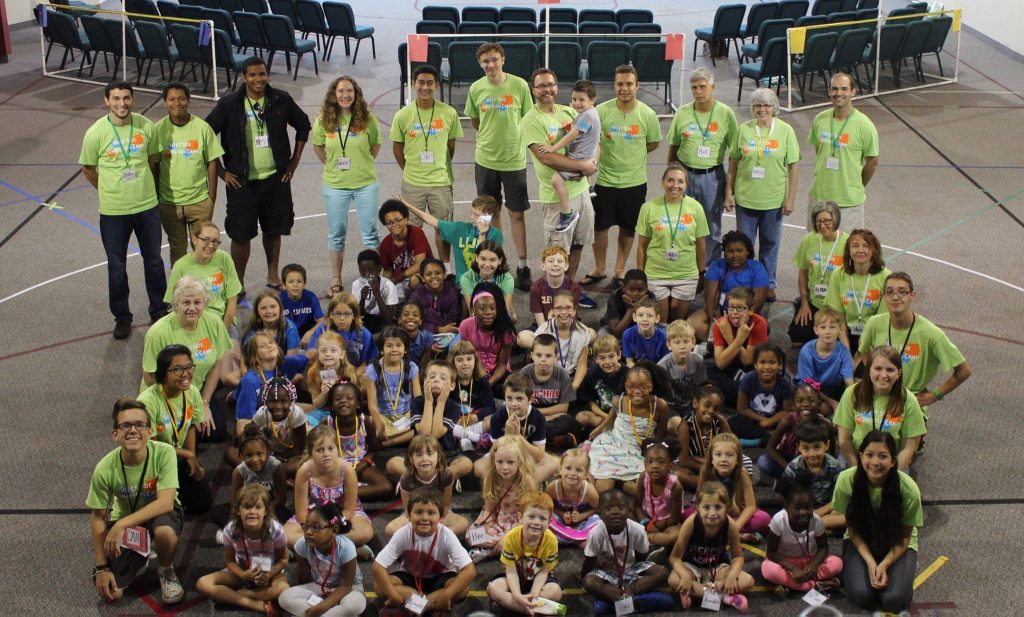
On Sunday following camp, Christ Fellowship Church hosted a worship celebration for campers and their parents. About 150 people attended (including 50 guests) and four were baptized. In reviewing these events, Anthony Mullins (GenMin national coordinator and camp participant) made this comment:
This was GenMin’s first attempt at this type of GCI church-camp partnership and I thought it was a smashing success! Now Christ Fellowship Church will continue the good work of discipling and serving their new members.
In the videos below, camp staffers share impressions of what they experienced while serving at Westside Christian Camp.
- Dustin Lampe, lead pastor at Christ Fellowship Church, notes how he saw the Lord at work and the impact the day camp had on parents and children, along with hopeful expectation of baptisms and families joining the life of the congregation.
On YouTube at https://youtu.be/b4s2ilp1iDs.
- Halie Carley talks about how she saw the gospel working in the hearts of the young children during the camp week. Halie attends the GCI church in Helena, Montana where she has volunteered many summers at SEP Montana.
On YouTube at https://youtu.be/hFUnJ4NbKHc.
- Chris Meade explains why he chose to invest two weeks of his busy summer on a GenMin mission trip and how it’s been to partner with a local GCI church to serve kids from their community.
On YouTube at https://youtu.be/zaWN6_nsuaA.
- Hazel Tabin talks about why she’s committed to serving as a domestic missionary with GC Trips.
On YouTube at https://youtu.be/hL8zXH4wB4Q.
For a report on this mission outreach from mission director Janet Morrison, click here.
Prayer matters
Dear Brothers and Sisters,
 I guess we’ve all experienced times of desperation when we cried out to God to intervene. Perhaps we prayed for a miracle, only to find that our prayer was seemingly to no avail when the miracle did not come. But I also guess most of us have experienced the joy of seeing the healing of a person we prayed for. I know a lady, who following prayer for her healing, had her missing rib grow back. The doctor told her, “Whatever you’re doing, keep doing it!” Many of us, I’m sure, have been comforted and encouraged knowing others are praying for us. I’m always encouraged when people tell me they’re praying for me. In reply I usually say “Thanks, I’ll take all the prayer I can receive!”
I guess we’ve all experienced times of desperation when we cried out to God to intervene. Perhaps we prayed for a miracle, only to find that our prayer was seemingly to no avail when the miracle did not come. But I also guess most of us have experienced the joy of seeing the healing of a person we prayed for. I know a lady, who following prayer for her healing, had her missing rib grow back. The doctor told her, “Whatever you’re doing, keep doing it!” Many of us, I’m sure, have been comforted and encouraged knowing others are praying for us. I’m always encouraged when people tell me they’re praying for me. In reply I usually say “Thanks, I’ll take all the prayer I can receive!”
A misguided approach
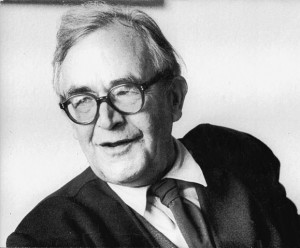
Whether our experiences with prayer have been negative or positive (and we’ve likely had both), it’s important to remember Karl Barth’s observation: “The most certain element of our prayer is not our requests, but what comes from God: His response” (Prayer, p. 66). But it’s easy to misinterpret God’s responses to our prayers when he does not answer the way we expected. It’s easy to fall prey to the mistake of viewing prayer as a mechanical process—treating God as if he was a cosmic vending machine where we submit our requests and he automatically gives us the desired “product.” This misguided approach, which is little more than an attempt to bribe God, often involves using prayer as a way to gain control of situations we’re powerless to control.
The purpose of prayer

Prayer isn’t about trying to get God to do something that he doesn’t want to do—it’s about joining God in what he is doing. Prayer isn’t about trying to control God—it’s about acknowledging that God has everything under his control. Barth explained it this way: “To clasp the hands in prayer is the beginning of our uprising against the disorder of the world.” In making this statement, he was acknowledging that we who are not of the world are, in prayer, joining God in his mission to the world. Rather than taking us out of the world (with all its disorder), prayer joins us to God and to his mission to save the world.
Because God loves the world, he sent his Son into the world, and when we pray with minds and hearts open to God’s will, we are placing our trust in the One who loves the world and loves us—the One who can see the end from the beginning and who can help us see that this present, mortal life is the beginning, not the conclusion. That sort of prayer helps us see that the world is not as God wants it, and it changes us so we can be agents of hope here and now in God’s present, unfolding kingdom.
When the opposite of what they pray for occurs, some people leap to the deistic conclusion that God is distant and uninvolved. Some even abandon belief in God altogether. Such was the case for Michael Shermer, founder of the Skeptic’s Society. He lost faith in God when his college sweetheart was severely injured in an automobile accident. With a broken back and paralysis from the waist down, she was permanently confined to a wheelchair. Michael believed that because she was a really good person, God should have answered prayers for her healing.
God is in control
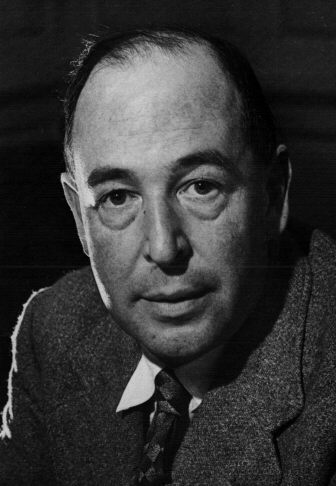
Rather than being a way to control God, prayer is humble acknowledgment that God is in control and we are not. In his book, God in the Dock, C.S. Lewis explained it this way:
Most of the events that go on in the universe are indeed out of our control, but not all. It is like a play in which the scene and the general outline of the story is fixed by the author, but certain minor details are left for the actors to improvise. It may be a mystery why He should have allowed us to cause real events at all, but it is no odder that He should allow us to cause them by praying than by any other method. [Christian philosopher Blaise] Pascal says that God “instituted prayer in order to allow His creatures the dignity of causality.” It would perhaps be truer to say that He invented both prayer and physical action for that purpose. He gave us small creatures the dignity of being able to contribute to the course of events in two different ways. He made the matter of the universe such that we can (in those limits) do things to it; that is why we can wash our own hands and feed or murder our fellow creatures. Similarly, He made His own plan or plot of history such that it admits a certain amount of free play and can be modified in response to our prayers. If it is foolish and impudent to ask for victory in war (on the ground that God might be expected to know best), it would be equally foolish and impudent to put on a [raincoat]—does not God know best whether you ought to be wet or dry?
Why pray?
Noting that God ordained prayer as a way for us to commune with him, Lewis explained in his book Miracles that God already has accounted for our prayers. The question then is this: Why pray? Lewis replies:
When we are praying about the result, say, of a battle or a medical consultation the thought will often cross our minds that (if only we knew it) the event is already decided one way or the other. I believe this to be no good reason for ceasing our prayers…. The event certainly has been decided—in a sense it was decided “before all worlds.” But one of the things taken into account in deciding it, and therefore one of the things that really cause it to happen, may be this very prayer that we are now offering.

Did you get that? God may be “answering” in response to a prayer he already knew you were going to pray. The ramifications of this are both thought-provoking and exciting. It tells us that our prayers are important; they matter. Lewis continues:
Though shocking as it may sound, I conclude that we can at noon become part causes of an event occurring at ten a.m. (Some scientists would find this easier than popular thought does.) The imagination will, no doubt, try to play all sorts of tricks on us at this point. It will ask, “Then if I stop praying can God go back and alter what has already happened?” No. The event has already happened and one of its causes has been the fact that you are asking such questions instead of praying. Thus something does really depend on my choice. My free act contributes to the cosmic shape. That contribution is made in eternity or “before all worlds”; but my consciousness of contributing reaches me at a particular point in the time-series.
Prayer matters
What Lewis is saying is that prayer matters—it always has and always will. Why? Because our prayers give us opportunity to join God in what he has done, is doing, and will do. Though we don’t understand all the ramifications of how science, God, prayer, physics, time and space, and things like quantum entanglement and quantum mechanics all work together, we know that God has determined such matters. Further, we know he has invited us to participate in what he is doing. Prayer is a big part of that participation.
As I pray, I often think of myself handing over or entrusting my prayers to God, knowing that, somehow, he will take and weave them into his good purposes, one way or another. I believe that God works together all things (including our prayers) for good in accordance with his glorious purposes. I’m also reminded that whenever we pray we are joining Jesus, our great High Priest, in his prayers of intercession. He takes our prayers, sanctifies them and shares them with the Father and the Holy Spirit. For that reason, I don’t believe there is ever an unanswered prayer. Our prayers join our Triune God in his will, purpose, and mission—much of which was determined before the foundation of the world.
While I can’t explain exactly why prayer matters, I trust God that it does. Therefore I’m encouraged when I hear that people are praying for me, and I hope you are encouraged knowing that I pray for you. I’m not doing so to try to control God, but to express my praise for the One who has all things under control.
Grateful that God is in control and that prayer matters,
Joseph Tkach
PS: For a previous Weekly Update letter on the practice of prayer, click here.
BLESS your neighbors
God made an amazing promise to Abram (later renamed Abraham):
I will make you into a great nation, and I will bless you; I will make your name great, and you will be a blessing. I will bless those who bless you, and whoever curses you I will curse; and all peoples on earth will be blessed through you. (Genesis 12:2-3)
As the spiritual children of Abraham, through Jesus, our calling is to join with Jesus in being that blessing to the world. Dave Ferguson of Exponential Church Planting shares five ways we can join in. In the Verge video embedded below, Dave notes that, “From the very beginning, God’s way of reaching and restoring the world has always been through what I would call a blessing strategy.” He then (using the acronym BLESS) provides a simple way to live out that strategy in and through our relationships with people around us (our neighbors):
B- Begin with prayer. Ask, “God how do you want me to bless the people in the places you’ve sent me to?”
L- Listen. Don’t talk, but listen to people, their struggles, their pains, in the places God has sent you.
E- Eat. You can’t just check this off. It’s not quick. You have to have a meal with people or a cup of coffee. It builds relationships.
S- Serve. If you listen with people and you eat with people they will tell you how to love them and you’ll know how to serve them.
S- Story. When the time is right, now we talk and we share the story of how Jesus changed our life.
On YouTube at https://youtu.be/BMpUSDKPU4s.
Church audit completed
This announcement is from GCI Treasurer Mathew Morgan.
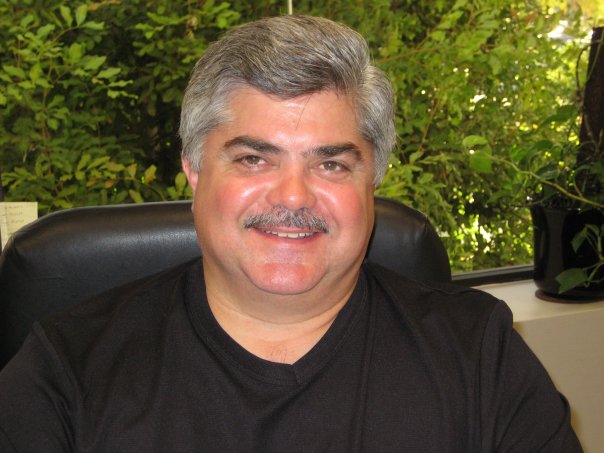
I am happy to report that Capin Crouse LLP, our external auditors, recently finished auditing GCI’s financial records for 2014 and 2015. They presented their findings to our Board of Directors on June 16, 2016. The report states the following:
In our opinion, the combined financial statements referred to above present fairly, in all material respects, the financial position of Grace Communion International and Affiliate in the United States of America as of December 31, 2015 and 2014, and the changes in their net assets and their cash flows for the years then ended in accordance with accounting principles accepted in the United States of America.
This statement means that the auditors have given us a “clean” or “unqualified” report, which is what we always strive for. During the presentation of the report, the auditors also share a “Letter to Management” outlining any suggestions that they may have for changes or improvements. The report did not make any suggestions for improvements. The presenting partner stated, “It is unusual to have a letter to management without any suggestions, because we always try to find something!” She complimented management on the Church’s financial systems.
As outlined in the GCI-USA Financial Management Manual, we ask that our chartered churches and chartered fellowship groups also do an annual internal financial review and an external review every three years. These reviews are vital, for they help insure that congregational finances are handled with proper care so donors feel comfort knowing that their donations are used well in support of the gospel.
Any GCI member in good standing in the United States may obtain a copy of Capin Crouse’s audit report by sending their request to:
Grace Communion International
Treasurer’s Office
P.O. Box 5005
Glendora, CA 91740
Birth of Jutsum’s grandchildren
Ross Jutsum, GCI elder and director of State of the Heart Ministries, and his wife Tammy are pleased to announce the recent birth of three grandchildren.
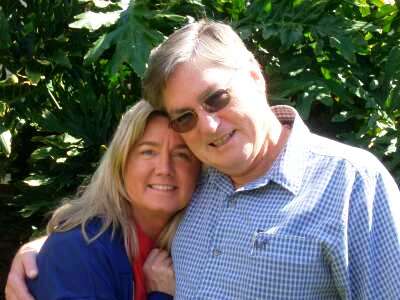
Ross and Tammy’s daughter Heidi recently gave birth to a son Gabriel Joseph. Heidi and her husband Ryan live in Connecticut. Ryan recently received a Ph.D. in Theology from Yale Divinity School, and with his mentor Miroslav Volf, coauthored the book Public Faith in Action.
The Jutsum’s daughter Lisa recently gave birth to twins: Evelyne Kathryn and Isaiah Frederick. The newborns, their mother and father (pictured below) are doing well. Lisa and Jonathan met in the Democratic Republic of the Congo while Lisa was serving as a missionary with Samaritan’s Purse, and Jonathan was working as a missionary pilot.

Death of John Coco
We were saddened to learn of the death of John Coco who had served as an elder in the Chicago area. John was born in 1926, served in the U.S. Navy during WWII, then married Dolores Jones. They have five children and several grandchildren. Here is a tribute written by a family member.

It was with great sadness that we said goodbye to a man who was a hero in many ways. At John’s funeral, someone stated they did not believe John was afraid of anything. I believe that to be a true of him. It’s also true that he lived his faith, using it to bring change and growth, reaching out to the “little guys,” taking care of widows, picking people up for church, giving money and groceries to those in need, and encouraging younger ministers, assuring them that he had their back.
Though a jokester and a corker, I think all of us would say that he knew how to love—and that he did, genuinely. John loved God, his wife, family, and other people. He is dearly missed, and fondly thought of. He will not be forgotten.
Why something rather than nothing?
Dear Brothers and Sisters,
 One reason I greatly enjoy the conferences in our fellowship is the opportunities they afford to share meals and conversation with people I don’t often get to see. At a recent U.S. regional conference, I enjoyed discussing Albert Einstein’s historic work with meteorological scientist Michael Anderson, a friend and GCI elder from Connecticut. I mentioned how I’m enchanted by Einstein’s well-known statement that “God does not play dice with the universe.” I also noted to him my amazement that Einstein’s predictions about our visible universe, made over 100 years ago, have been verified by science through empirical measurement.
One reason I greatly enjoy the conferences in our fellowship is the opportunities they afford to share meals and conversation with people I don’t often get to see. At a recent U.S. regional conference, I enjoyed discussing Albert Einstein’s historic work with meteorological scientist Michael Anderson, a friend and GCI elder from Connecticut. I mentioned how I’m enchanted by Einstein’s well-known statement that “God does not play dice with the universe.” I also noted to him my amazement that Einstein’s predictions about our visible universe, made over 100 years ago, have been verified by science through empirical measurement.
Gravitational waves
One of Einstein’s predictions was that there are speed-of-light gravitational waves traveling through space. Einstein considered them too small to be measured and thus unverifiable.

Though Einstein was right about the existence of gravitational waves, he was wrong to think they would never be discovered. In fact, they were recently detected and measured by the Laser Interferometer Gravitational-Wave Observatory (LIGO) via its two installations in Louisiana and Washington. LIGO analyzed and merged multiple sources of light, using technology that is able to detect distortions one million times smaller than the width of a hydrogen atom. LIGO’s measurements suggest that these gravitational waves originated with a cataclysmic event in the primordial universe.
The realm of God

(public domain)
Given amazing discoveries like gravitational waves, some scientists wonder if there is a timeless dimension holding together our time-bound universe. Though the scientific community in general does not accept that idea, God’s revelation, centered on Jesus, tells us of a timeless dimension that the Bible refers to as eternity (I like to call it the realm of God). In musing on how something of that realm is revealed to us by God’s creation, David (who I imagine to be the first rap artist) wrote this:
The heavens declare the glory of God;
the skies proclaim the work of his hands.
Day after day they pour forth speech;
night after night they reveal knowledge.
They have no speech, they use no words;
no sound is heard from them.
Yet their voice goes out into all the earth,
their words to the ends of the world.
(Psalm 19:1-4)
Inner space and the limitations of science
Utilizing ever-more amazing technology, science continues to learn about the outer and inner realms of created space. Recently, scientists looked into the hidden recesses of inner space by examining what is left after smashing sub-atomic particles. With discoveries like this, some say humankind may be near the limit of what can be understood about the universe. Another friend and fellow GCI elder, John Meyer, alerted me to an article [1] featuring the work of Dr. Harry Cliff, a particle physicist at the European Organization for Nuclear Research. Dr. Cliff says we can’t go further in our understanding of the universe because “the laws of physics forbid it.”
Concerning what he calls “the two most dangerous numbers in the universe,” Dr. Cliff notes that if either was only minutely different, nothing would exist. The first number pertains to the strength of the Higgs field (see below), and the second with the repulsive force of the dark energy that accelerates the expansion of the universe. (I must interject a thought here: perhaps Dr. Cliff and others should ask where those two numbers originated and how they became firmly set in relationship with the universe.)
Following discovery of the Higgs boson—the so-called “God particle” [2] by a team of scientists (including Keith Baker, another friend and GCI member in Connecticut), attention turned to the Higgs field [3], the strength of which is a bit of a puzzle. When particles move through this field they gain mass and become protons, neutrons and electrons, which comprise all matter. The Higgs field runs on a constant, very weak energy level. As Dr. Cliff notes, “The Higgs field is just slightly on—it’s not zero, but it’s ten-thousand-trillion times weaker than its fully-on value.” This “weakness” defies current scientific understanding. (Could it be that many scientists engaging in the philosophy of science refuse to see that God has the Higgs field under his control?)
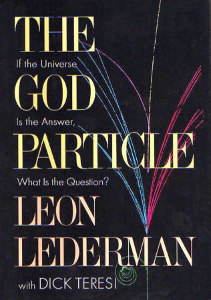 In The God Particle: If the Universe Is the Answer, What is the Question? [4], physicist Leon Lederman explains the discovery of the Higgs boson using a parody of the tower of Babel:
In The God Particle: If the Universe Is the Answer, What is the Question? [4], physicist Leon Lederman explains the discovery of the Higgs boson using a parody of the tower of Babel:
The issue is whether physicists will be confounded by this puzzle or whether, in contrast to the unhappy Babylonians, we will continue to build the tower and, as Einstein put it, “know the mind of God.” …The whole universe was of many languages, and of many speeches. And it came to pass, as they journeyed from the east, that they found a plain in the land of Waxahachie, and they dwelt there. And they said to one another, “Go to, let us build a Giant Collider, whose collisions may reach back to the beginning of time.” And they had superconducting magnets for bending, and protons had they for smashing. And the Lord came down to see the accelerator, which the children of men builded. And the Lord said, “Behold the people are unconfounding my confounding.” And the Lord sighed and said, “Go to, let us go down, and there give them the God Particle so that they may see how beautiful is the universe I have made.”
In reference to his second “dangerous number” (concerning dark energy), Dr. Cliff admits that science has extremely limited understanding. “The best idea,” he said, “is that it is the energy of empty space itself—the energy of the vacuum.” Noting that dark energy should be “10120 times stronger than the value we observe from astronomy,” he concludes that theoretical physics has a real and quite mysterious problem:
We may be entering a new era in physics. An era where there are weird features in the universe that we cannot explain. An era where we have hints that we live in a multiverse that lies frustratingly beyond our reach. An era where we will never be able to answer the question “Why is there something rather than nothing?”
It’s unlikely that physicists will break through these limits without expending massive amounts of time and money. The collider in Geneva used in discovering the Higgs boson likely is not up to the further discoveries necessary to verify as yet unverified scientific theories. But some theories seem to be, in principle, beyond scientific verifiability. For instance, in order to verify the theory of multiple universes (the “multiverse”) we would need to get outside of our own and exist in another universe where the physics of it would be incomparable with that of our own (since that’s what makes it another universe)!
Including God in our thinking about the universe
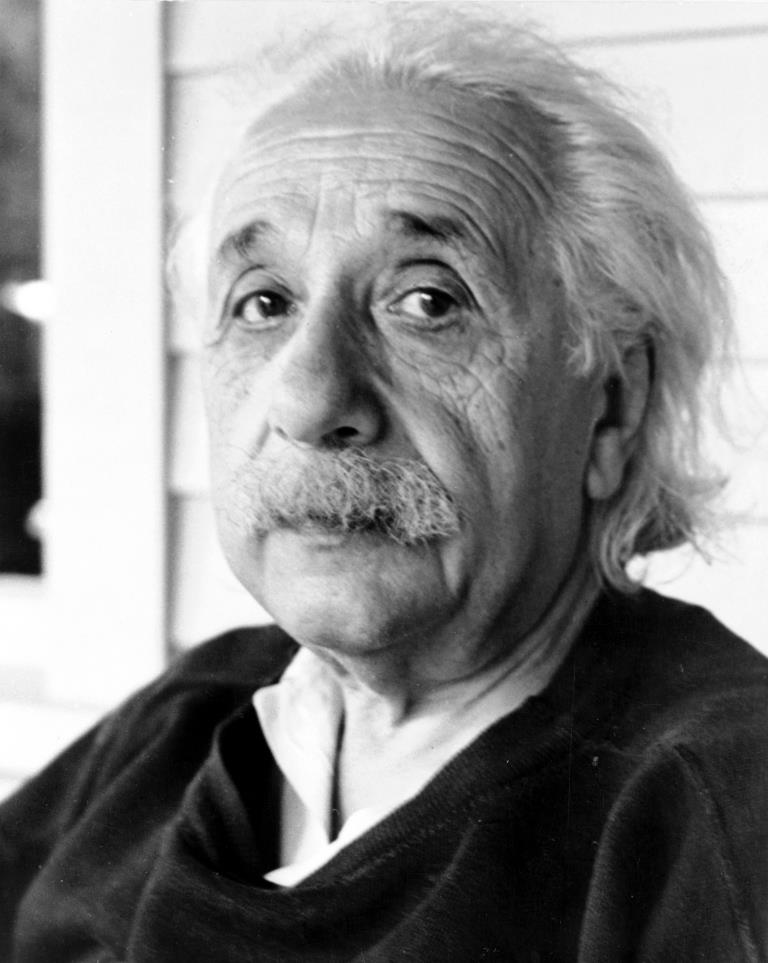
(public domain)
Why was Albert Einstein so advanced in his thinking? I believe it is because he included in his thinking the reality of a creator of the universe. Though some claim he was an atheist or agnostic, it’s clear that Einstein did not exclude God from his thinking the way many scientists do. His metaphor that God does not play dice with the universe continues to cut through mysteries concerning the universe that baffle many scientists. Yes, Einstein was not able to adequately describe God’s role in creating and sustaining the universe, but then, neither am I, except to say that I know God as creator of both nature and science, the latter being our ability to understand, at least to some extent, the wonders and mysteries of the created universe.
Natural science is fundamentally about discovery, which includes coming to realize that we lack explanations for many of the things we observe about the natural world. God, as yet, has not made these things known to us, nor has he allowed us, so far, to invent the means of research and development by which we may yet come to know. But more than that, if the original and continuing agency of the living God is essential to answering, Why is there something rather than nothing?, then the study of nature alone can never fully answer that question. This is so because God is not nature, nor is he a part of nature. As early church teachers such as Athanasius realized, Only God knows God and only God reveals God (see 1 Corinthians 2:11).
C.S Lewis put it this way: we should not expect to find the author of a book in the book of his own creation (although he could have written in something of himself as one of the characters of the book!). While nature seems to continually point beyond itself, the natural sciences are unable to go beyond their inherent limits to find answers to the kinds of questions they raise. The natural sciences require a higher level of explanation than they can ever deliver, since nature is not God, and science restricts itself to the study of nature.
Looking beyond the natural sciences to theological science
Acknowledging this limitation of science is important in that it helps us understand that if we are to have an ultimate explanation for nature (and for science itself), we will have to turn to a higher, more comprehensive level of explanation. Our study of nature (of inner and outer space in particular) has, seemingly, brought us to the point where we must recognize that nature raises questions that, in principle, science is unable to answer. Therefore we must look beyond the natural sciences to answer the very questions that this field of study raises.
In searching for answers we must examine theological science, which seeks knowledge from the study of the historical and personal revelation of God which comes through Israel and culminates in Jesus Christ, God’s ultimate self-revelation. Holy Scripture is the record of that revelation which affirms a kind of “multiverse,” consisting of two realms—the heavenly and the earthly. While we cannot exist outside our own universe and reach into another, we have received from that other heavenly “universe” of God his own revelation. The Author himself has broken into our universe and provided us the ultimate explanation for why there is something rather than nothing: the agency of our Triune God, who is the creator, sustainer and redeemer of this universe.
Amazed by God, his creation, and revelation,
Joseph Tkach
____________________
Note: all public domain pictures are via Wikimedia Commons.
[1] See the article at http://www.businessinsider.com/the-end-of-physics-as-we-know-it-2016-1. To watch the TED talk with Dr. Cliff referenced in the article, go to http://www.ted.com/talks/harry_cliff_have_we_reached_the_end_of_physics#t-705970.
[2] For more about the Higgs boson particle, go to https://en.wikipedia.org/wiki/Higgs_boson.
[3] For an explanation of the Higgs field, go to http://www.fnal.gov/pub/science/inquiring/questions/higgs_boson.html.
[4] See the referenced book at https://books.google.com/books?id=-v84Bp-LNNIC&printsec=frontcover&hl=en#v=onepage&q&f=false.
Preaching resources
Preaching is one of the most important tasks for pastoral leaders. Below are links to resources that preachers can use in honing their craft and in teaching others to preach.
- Nine Benefits of Expository Preaching by Tony Merida: http://www.lifeway.com/pastors/2016/06/13/9-benefits-of-expository-preaching/.
- An interview with Bryan Chapell on expository, Christ-centered preaching: http://www.preaching.com/resources/articles/christ-centered-preaching–an-interview-with-bryan-chapell/.
- Sermon Summaries—a regular feature in GCI Equipper. For ones published to date, go to https://equipper.gci.org/category/sermon.
- A series of articles on preaching by Ed Stetzer:
- http://www.christianitytoday.com/edstetzer/2016/february/thinking-about-expository-preaching-part-1.html
- http://www.christianitytoday.com/edstetzer/2016/february/thinking-about-expository-preaching-part-2.html
- http://www.christianitytoday.com/edstetzer/2016/february/thinking-about-expository-preaching-part-3.html
- http://www.christianitytoday.com/edstetzer/2016/june/preaching-without-dumbing-down.html



